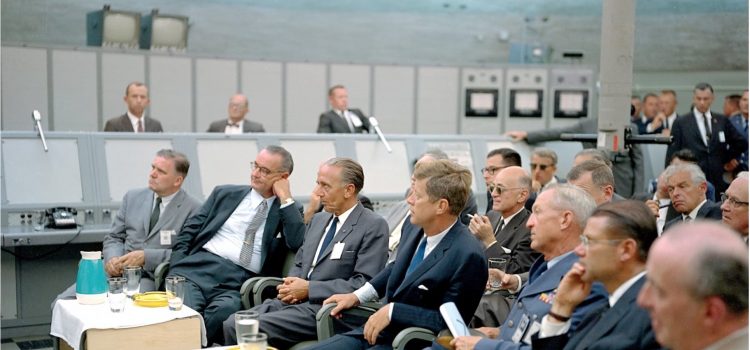
This is a free excerpt from one of Shortform’s Articles. We give you all the important information you need to know about current events and more.
Don't miss out on the whole story. Sign up for a free trial here .
Are age limits for politicians anti-democratic? What other ways can the U.S. increase the age diversity of politicians?
Some Americans are concerned that the overrepresentation of older people among elected officials threatens democracy. By contrast, others argue that it’s ageist and anti-democratic to blame the nation’s problems on elderly politicians.
Read on to learn opinions on enacting age limits for U.S. politicians, including other proposed solutions.
U.S. Politicians & Age Limits
Today’s U.S. Congress is on average the oldest in the nation’s history and the average age is higher than that of the nation. The median age in the U.S. is 38, while the median age of the current Congress is 60. Only 7% of the current House of Representatives are Millennials, and there’s only one Millennial senator. If it’s a problem that U.S. politicians skew older, how should we address the lack of age diversity in American politics? Some have suggested imposing an age limit for politicians but critics claim age limits are ageist and anti-democratic.
In this article, we’ll present several proposals for solving this lack of age diversity, including the counterarguments to these solutions.
Proposal 1: Enact Maximum Age Limits for Elected Officials
For politicians, the Constitution has minimum age limits for running for presidency and Congress, but no maximum age caps. Among those who think it’s a problem that older people are overrepresented in U.S. politics, many advocate maximum age limits for politicians. According to a recent poll, 73% of U.S. voters think there should be a maximum age limit for elected officials; 70 years was the most popular answer for maximum age.
The lack of maximum age limits for politicians in the Constitution reflects historical circumstances, rather than a principled argument against age limits. Age limits were unnecessary when the Constitution was drafted, since life expectancy in the late 18th century was in the mid-30s. In order to establish maximum age limits, a Constitutional amendment would need to be passed—which some point out could be impossible to do.
There are several reasons behind the proposal in favor of maximum age limits for U.S. politicians. First, some argue that maximum age limits would prevent people with cognitive decline from making consequential political decisions. Second, some claim it would increase the age diversity among elected officials. If older people were barred from holding office, young people might fill their seats.
Counterpoint 1: Maximum Age Limits May Not Increase Politicians’ Age Diversity
Some insist that maximum age limits for politicians wouldn’t necessarily lead to greater age diversity in Congress. This is because the average age of new Congress members is about 55 in the Senate and 50 in the House. A maximum age limit could just lead to more members in their 50s.
Counterpoint 2: Maximum Age Limits Are Ageist and Anti-Democratic
Regardless of whether maximum age limits would successfully increase the age diversity of Congress, some argue that this solution is inherently ageist and anti-democratic. First, they claim that it’s an ageist stereotype to assume that all older people suffer from cognitive decline. Second, barring older people from office could lead to less representation of elderly citizens’ interests. Third, maximum age limits for politicians could promote age discrimination generally: These limits could normalize age discrimination, leading to an increase in beliefs and policies that disenfranchise and further marginalize older Americans.
Proposal 2: Enact Term Limits for Elected Officials
Some claim that there’s a less ageist way to increase the age diversity of elected officials: Enact maximum term limits for Congress members. The U.S. Presidency has a maximum limit of two terms, but the U.S. Congress lacks term limits. There’s already public support for enacting term limits for Congress members: According to a recent poll, eight in 10 Americans favor term limits. Proponents claim that term limits would increase the age diversity of Congress without excluding all older people like maximum age limits for politicians would do. There would be more frequent vacancies, increasing the chances that younger people would enter office.
Proposal 3: Focus on Increasing Young People’s Representation in Politics
Beyond the ideas of maximum age limits and term limits for politicians, some argue that efforts to increase young people’s representation in politics may naturally create a more age-diverse Congress. Furthermore, some claim that while it’s ageist to ban older people from office, it’s not ageist to promote initiatives that increase younger people’s representation.
Many Americans support the idea of increasing young people’s representation in U.S. politics. A recent poll reveals that 70% of America’s voting-age citizens under 30 feel their age is underrepresented in Congress. According to another recent poll, 35% of Americans believe there should be more Gen Z members (people 25 and under) in Congress; and when asked to share the ideal age for a Congress member, the average response among Americans was 42.
Whose responsibility is it to increase young people’s representation in U.S. politics? Some blame young people for their low levels of participation in politics, and they argue that they need to vote and run for office in higher numbers. Others emphasize that it’s the Democratic and Republican parties’ responsibility to increase young people’s representation by developing young leaders and passing policies that reduce voter suppression and make it easier for young, working people to vote.
Lastly, other countries may offer examples of how the U.S. could increase its representation of young people in elected office:
- One idea is to lower the minimum age limits. Currently, a U.S. citizen must be 35 to run for President, 30 to run for Senate, and 25 to run for the House. By contrast, countries like Turkey and the United Kingdom permit citizens 18 and over to run for office.
- A second idea is to increase young people’s awareness of what it’s like to serve in office. For instance, Guyana recently launched a debating competition to familiarize youth with parliamentary procedures.
- A third idea is to enact youth quotas: reserving seats for young elected officials. Four countries have youth quotas: Rwanda, Morocco, Kenya, and Uganda.

Want to fast-track your learning? With Shortform, you’ll gain insights you won't find anywhere else .
Here's what you’ll get when you sign up for Shortform :
- Complicated ideas explained in simple and concise ways
- Smart analysis that connects what you’re reading to other key concepts
- Writing with zero fluff because we know how important your time is






